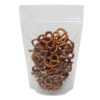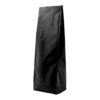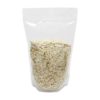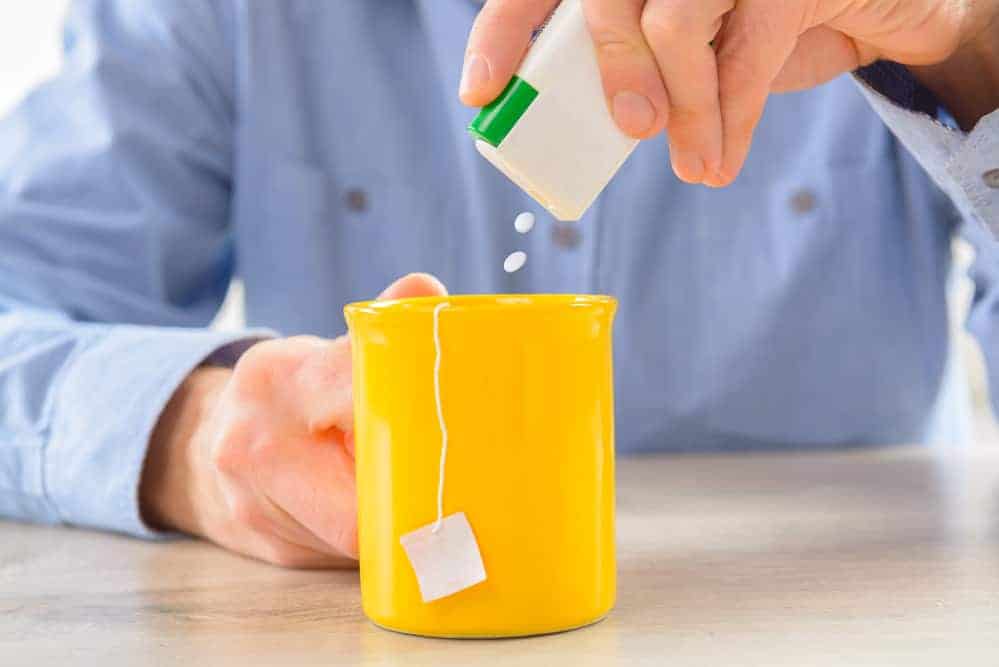Blog
The Best Coffee and Tea Natural Sweetener
You might be horrified to find out that the average American consumes approximately 66 pounds of added sugar a year! This translates into a whopping 19.5 teaspoons or 82 grams of sugar every day! And it seems that the consumption of refined sugar is increasing every year. But that’s not all that’s on the rise. So is the rate at which we consume artificial sweeteners. They seem to be everywhere, and not just in so-called ‘diet’ products either.
Although the safety of some artificial sweeteners has been debated for many years, the FDA technically classifies them as ‘safe’ for consumption. The ones that have been most under scrutiny are saccharin, ACE K, aspartame, and sucralose, all of which are thought to have damaging side-effects. These include headaches and migraines, kidney and liver function impairment, mood disorders and shrunken thymus glands.
But refined sugars are certainly not healthy either. They can lead to everything from dental cavities to diabetes, obesity, cardiovascular disease, certain cancers, and even poor cognitive function. You might have noticed high fructose corn syrup as an ingredient in many of the products you consume.
Claims that it is a healthy natural sweetener are not true, though. For a start, most of it comes from genetically modified corn, which is thought to have many disadvantages. Also, fructose is a simple sugar that the liver metabolizes rapidly, leading to a ‘sugar high’ or spike in blood sugar levels.
It is also believed that fructose leads to fatty deposits in the liver, which can result in non-alcoholic fatty liver disease. Fructose is also linked to atherosclerosis and digestive upsets.
Natural sweeteners that are healthy
Luckily, there are plenty of natural sweeteners out there that are healthy and taste good too. Consuming healthy alternatives to refined sugar and high fructose corn syrup – such as honey, maple syrup, and blackstrap molasses – is linked to a higher intake of beneficial antioxidants.
1. Raw honey
Raw honey is a natural sweetener that is often used as a replacement for refined sugar in coffee or tea. Bees produce honey to keep them fed for the difficult winter months. As a result, honey is full of calcium, phosphorous, vitamin B6, riboflavin, niacin, potassium, zinc, iron, antioxidants, and enzymes.
These nutrients together help to neutralize free radicals and promote digestive health by encouraging the growth of healthy bacteria. However, these benefits only come from consuming raw honey. Once it has been pasteurized, it loses many of its health-giving benefits. Do not heat raw honey. Instead, add it to tepid tea or coffee to ensure that you receive the health benefits.
2. Stevia
Native to South America, stevia has been used in the area for maintaining blood sugar levels and for quick weight loss. It is 200 times sweeter than sugar, and is available in various forms, including liquid, packets, baking blends and as dissolvable tablets.
It has zero calories and is stable under heat, so you can add it to hot drinks. But remember how sweet it is. Only use in small quantities. For baking, use a baking blend or substitute the sugar required in the recipe with fruit puree or coconut flour.
3. Coconut Sugar
There has been a lot of talk about the benefits of drinking coconut water, but did you know that coconut sugar is a fantastic way of sweetening things up? More and more people are getting switched on to coconut sugar as their natural sweetener of choice.
It has a low glycaemic index and is high in minerals such as calcium, potassium, phosphorous, iron, zinc, polyphenols and phytonutrients. Coconut sugar is the sap of the coconut blossom that is extracted and then heated. After a process of evaporation, the resulting substance is coconut sugar.
This magical substance is slightly coarser than refined sugar but can be used in the same quantities in a variety of recipes. Try coconut sugar in your next cuppa Joe and taste the delicious difference.
4. Maple Syrup
The delectable substance that is maple syrup comes from North America in both Grades A and B. Maple syrup producers first drill a hole in a maple tree, and then hang a bucket underneath to catch the sap. The sap is then boiled to evaporate the water and then filtered to get rid of any sediment.
Maple syrup is a great source of various nutrients, including zinc, potassium, calcium, and antioxidants. These help to neutralize dangerous free radicals and reduce oxidative damage to the cells. The darker Grade B syrups contain more antioxidants than, the paler ones. This syrup is heat stable and can easily be used in your tea and coffee.
5. Blackstrap molasses
All types of molasses come from boiling sugar cane juice, but blackstrap molasses undergoes a further boiling until it is rich and sweet. This third boiling concentrates its nutritive value and provides for its deep, full flavor.
Blackstrap molasses is highly nutritious. It contains significant quantities of selenium, manganese, iron, potassium, calcium and vitamin B6. In fact, blackstrap molasses is far higher in phenols and antioxidants than refined sugar, rape honey, corn syrup, dates and beet sugar.
Using blackstrap molasses in your tea or coffee is an acquired taste. Because of its rich and unique flavor, it might not appeal to everyone. But it’s worth a try. And if you don’t like it in your beverages, you can use it for baking or in marinades.





